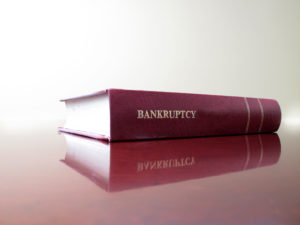 Rule 1009(a) of the Federal Rules of Bankruptcy Procedure provides that schedules “may be amended by the debtor as a matter of course at any time before the case is closed.” This facially simple provision, however, has led to a, a split among the courts as to whether a debtor has an automatic right to amend his schedules (normally by adding or changing an exemption) after his case was closed, but, subsequently reopened. Courts have taken three approaches to this issue. The strictest approach imposes an absolute bar on certain amendments in reopened cases. The broadest approach applies Rule 1009(a) equally to open or reopened cases. The so-called middle approach applies Rule 9006(b)(1) of the Federal Rules of Bankruptcy Procedure to resolution of the issue. Rule 9006(b)(1) provides:
Rule 1009(a) of the Federal Rules of Bankruptcy Procedure provides that schedules “may be amended by the debtor as a matter of course at any time before the case is closed.” This facially simple provision, however, has led to a, a split among the courts as to whether a debtor has an automatic right to amend his schedules (normally by adding or changing an exemption) after his case was closed, but, subsequently reopened. Courts have taken three approaches to this issue. The strictest approach imposes an absolute bar on certain amendments in reopened cases. The broadest approach applies Rule 1009(a) equally to open or reopened cases. The so-called middle approach applies Rule 9006(b)(1) of the Federal Rules of Bankruptcy Procedure to resolution of the issue. Rule 9006(b)(1) provides:
(b) Enlargement.
(1) In General. Except as provided in paragraphs (2) and (3) of this subdivision, when an act is required or allowed to be done at or within a specified period by these rules or by a notice given thereunder or by order of court, the court for cause shown may at any time in its discretion (1) with or without motion or notice order the period enlarged if the request therefor is made before the expiration of the period originally prescribed or as extended by a previous order or (2) on motion made after the expiration of the specified period permit the act to be done where the failure to act was the result of excusable neglect.
In re Awan, 2017 WL 4179816 (Bankr. C.D.Ill. September 20, 2017) dealt with the typical fact scenario in which this issue arises. In Awan, the debtor filed his voluntary Chapter 7 petition on July 31, 2013. On September 12, 2013, following the meeting with creditors, the Chapter 7 Trustee filed her Report of No Distribution indicating that there was no property available for distribution to creditors. An order granting the debtor’s discharge was subsequently entered, and on November 29, 2013, the case was closed. On February 9, 2017, the United States Trustee filed a Motion to Reopen Case and Appoint Trustee alleging that the Debtor had a previously undisclosed claim for a personal injury. Following a hearing, the case was reopened and the Trustee was reappointed. The trustee requested that the attorneys be employed retroactively to complete a settlement that was negotiated between the time the debtor’s Chapter 7 case was closed and the time it was reopened. On August 9, 2017, however, the debtor filed his Amended Schedules A/B and C, formally disclosing for the first time the personal injury claim settled by the trustee and claiming a $15,000 exemption in the settlement proceeds under Illinois law.
Awan followed the above referenced “middle” approach and held that Rule 9006(b)(1) governs the ability of a debtor to amend schedules in a reopened case. Id. at *2. The court stated that Rule 1009(a) plainly provides that schedules “may be amended by the debtor as a matter of course at any time before the case is closed.” The court went on to note that reopening a case did not change the fact that it has been closed and, by the plain language of Rule 1009(a), the liberal right to amend schedules ends when a case has been closed. Id. at *3. It noted that while some courts drew no distinction between an open case and a reopened case, such a circular interpretation would render the rule’s limitation completely illusory and, therefore, meaningless.
It is, of course, true that nothing in Rule 1009 prohibits amendments to schedules in reopened cases. But the absence of any reference to such a circumstance must not be equated with some tacit approval by the legislature. “If the drafters had wanted to allow amendments [as a matter of course] ‘at any time,’ ‘at any time the case is open,’ or ‘unless the case is closed,’ they would have said so.” [quoting In re Bartlett, 326 B.R. 436, 439 (Bankr.N.D.Ind.2005] Unless this Court is to ignore the plain language of Rule 1009, the Debtor’s right to amend his Schedule C as a matter of course ended when his case closed on November 29, 2013.
Id. at *3. Applying the Rule 9006(b)(1) to the facts of its case, the court noted that the debtor did not request an extension of time to file his Amended Schedule C or even attempt to make a showing of excusable neglect, despite the court giving him an additional opportunity to do so. “As such, the Trustee’s objection to the Debtor’s claim of exemption in the settlement proceeds must be sustained.” Id. at *3.
A similar approach and conclusion was followed and reached in In re Sievert, 2021 WL 4994438 (Bankr.W.D.Wis. Oct. 27, 2021). The facts in Seivert were almost identical to those in Awan. The court started its analysis by finding that when a case is closed, the liberal right to amend ends by the plain language of Rule 1009(a). Id. at *3. Therefore, the court, as in Awan, fell back on Rule 9006(b)(1). In this regard, it noted that debtors have a continuing duty to disclose and assist the trustee in efforts to repay creditors. In this case, the debtor did not honor this “continuing duty” and, thus, did not establish excusable neglect.
She did not request an extension of time to amend her schedules. She did not disclose the claim before it was discovered by Jones. Then she waited more than four months to file amendments.
She was aware of her injury. She [in fact] communicated with and then hired a law firm in connection with the claim.
Id. at *4. The court concluded that the length of delay, the many opportunities for disclosure that were ignored, and the potential effect on judicial proceedings weighed against the debtor. Id. at *4.
In re Muscato, 582 B.R. 599 (Bankr.W.D.N.Y.2018) came to a different conclusion. In this reopened case, the Chapter 7 trustee objected to the debtor’s claim of exemption for a previously undisclosed interest in real property. The exemption was claimed through an amendment made to the debtor’s Schedule C after the case was reopened. The central issue involves the extent to which this Court can disallow a valid but tardily claimed exemption.
The court here ruled that the outcome of this dispute was resolved by Law v. Siegel, 134 S.Ct. 1188, 188 L.Ed.2d 146 (2014), which held that a bankruptcy trustee could not surcharge an exemption for administrative costs that resulted from the debtor’s fraudulent misrepresentation. Muscato noted that [“i]n reaching this result, the Court recognized a broad entitlement to the benefit of a statutorily allowed exemption, without regard to the good faith of the debtor or prejudicial impact on the bankruptcy estate.” Id. at 601. The court noted that because the debtor’s case had previously been closed, the debtor could not simply amend her schedules, but needed also to reopen her case. Citing to Section 350(b) of the Bankruptcy Code, the court then stated:
Indeed, section 350(b) expressly acknowledges that a proper purpose of reopening is “to accord relief to the debtor.” Pursuant to 11 U.S.C. §522, bankruptcy relief includes the right to enjoy the benefit of all allowable exemptions. Upon the reopening of this case, the debtor duly amended her schedules to claim an exemption. The denial of this opportunity would serve as a mere subterfuge for disallowing a proper exemption.
Id. at 602. The court then rejected those decisions which hold that amendments to schedules in reopened cases is only allowable upon a showing of “excusable neglect” under Bankruptcy Rule 9006(b). It did so by quoting the rules which states:
[W]hen an act is required or allowed to be done at or within a specified period by these rules or by a notice given thereunder or by order of court, the court for cause shown may at any time in its discretion * * * on motion made after the expiration of the specified period permit the act to be done where the failure to act was the result of excusable neglect. (emphasis added)
The court noted that Rule 9006(b) speaks to a specific period, and not to an indeterminate span of time whose length is not precisely set. Simply, Rule 1009 does not require that exemption schedules be amended “within a specified period.” Id. at 603.
A similar conclusion was reached in In re Mendoza, 595 B.R. 849 (10th Cir.BAP 2019). Here, the court stated that a resolution of this particular issue rested on whether Rule 1009(a)‘s “any time before the case is closed” language creates a “specified period” during which an act must be done. If Rule 1009(a) creates such a “specified period” for a debtor to amend his/her schedules, then the debtor must show that the failure to act was the result of excusable neglect. However, if Rule 1009(a) does not create a “specified period” for a debtor to amend schedules, then amendments could occur as a matter of course at any point while the case is open. Id. at 855.
The court followed that latter interpretation of Rule 1009(a). In analyzing this rule, it noted that the only temporal requirement states an amendment to schedules must occur “any time before the case is closed.” Applying a plain meaning analysis, the court explained that the phrase “any time before the case is closed” does not create a “specified period.” Rather, it is impossible to determine the date a case will be closed, suggesting that Rule 1009 references an indeterminate timeframe. Id. at 855-56.
A reopening renders a case open. Rule 1009(a) contains no distinction between an original case and a case closed and then reopened. Nor does the Rule limit amending schedules to any time prior to the first closing of the case. As previously stated, Rule 1009(a)‘s plain language does not create an ascertainable and specific period during which a debtor may amend his or her schedules. With this conclusion, we join a number of courts in holding “the debtor, under Rule 1009, may amend schedules without limitation of whether the case is open or reopened after closing.”
Id. at 856-57.
Matthew T. Gensburg
[email protected]

